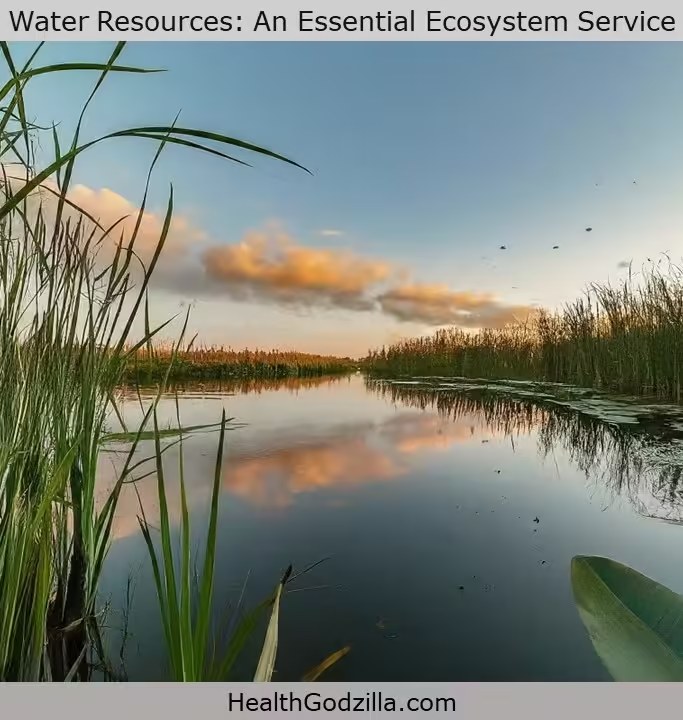
Why Freshwater Matters
Freshwater is vital for our health and well-being. It is a crucial ecosystem service provided by nature, ensuring we have clean water to drink, grow food, and maintain hygiene. Freshwater ecosystems like forests, wetlands, soil, and mountains play a significant role in the water cycle. They help manage nutrients, prevent soil erosion, and filter out pollutants.
Mountain Ecosystems: Nature’s Water Towers
Mountains are the starting points for many of the world’s major rivers. More than half of the global population depends on water from these highlands. Mountain ecosystems contribute significantly to river flow, especially in dry areas where they can supply up to 95% of the annual river discharge. Biodiversity in these areas is crucial for maintaining the health of mountain ecosystems and the rivers they feed.
Forests: Guardians of Water and Soil
Forests protect our water and soil in various ways. They prevent erosion, control landslides, and protect riverbanks from being worn away. Water flow increases during dry seasons in some regions—such as cloud forests. Natural forests enhance water quality by trapping sediments, filtering out pollutants, and reducing microbial contamination—this is especially important in low-income countries, where forests help reduce the frequency and impact of floods.
Wetlands: Nature’s Water Filters
Wetlands are incredibly effective at improving water quality. Their hydrological, chemical, and biological processes filter and clean water. Groundwater, which many rely on for drinking and irrigation, also benefits from the purification services provided by diverse ecosystems.
Biodiversity: A Double-Edged Sword
While diverse ecosystems can sometimes be sources of disease, they often play a beneficial role. High biodiversity can prevent certain species from becoming dominant, which can help control the spread of diseases. For example, diverse vertebrate hosts can reduce the impact of species that are primary carriers of pathogens.
The Big Picture
Water purification provided by biodiverse ecosystems is essential for maintaining water quality, which is critical for human health. Protecting and preserving these ecosystems, we ensure a sustainable supply of clean water for all.
By understanding and valuing these natural processes, we can make informed decisions to protect our water resources and promote a healthier planet.
Call to Action
Make small changes in your daily life to conserve water.
In the Bathroom:
- Shorter Showers: Aim for 5-minute showers instead of long baths. To reduce water usage further, consider installing a low-flow showerhead.
- Turn Off the Tap While Brushing Teeth or Shaving: Do not let the water run continuously while brushing or shaving. Wet your brush and rinse when needed.
- Fix Leaky Faucets: Even a small drip can waste gallons of water over time. Repair leaky faucets promptly.
In the Kitchen:
- Wash Dishes Only When Full: To maximize water efficiency, don’t run the dishwasher for half a load—wait until it’s complete.
- Defrost Food in the Fridge: Avoid running water to defrost frozen food. Instead, thaw it in the refrigerator overnight.
- Wash Fruits and Vegetables in a Bowl: Fill a bowl with water to rinse produce instead of letting the water run continuously under the faucet.
Laundry:
- Run Full Loads Only: Wash only full loads of laundry to avoid wasting water.
- Adjust Water Levels: Many washing machines have adjustable water level settings. Choose the setting that is appropriate for the size of your load.
- Air Dry Clothes When Possible: Whenever possible, hang clothes to dry instead of using the dryer—this saves water and energy.
Around the House:
- Fix Leaky Toilets: A leaky toilet can waste hundreds of gallons of water daily. Get any leaks fixed promptly.
- Water Your Lawn Wisely: Water your lawn early in the morning or evening to minimize evaporation. Water deeply and less frequently to encourage root growth. Consider using a broom to clean driveways and patios instead of hosing them down.
- Install a Rain Barrel: You can collect rainwater in a rain barrel to water plants or wash your car.
Additional Tips:
- Upgrade to water-efficient appliances: Look for Energy Star-rated appliances when replacing old, water-guzzling models.
- Invest in a low-flow toilet: Low-flow toilets use less water per flush than older models.
- Take advantage of local water conservation programs: Many water utilities offer rebates or incentives for installing water-saving devices or participating in water conservation programs.
Thank you so much, Shawmik! Your excitement means the world to me. I can’t wait for you to explore the…
Amazing writing, keep up the good work!
Thank you so much, Shawmik! Your excitement means the world to me. I can’t wait for you to explore the…
Amazing initiative! Eagerly waiting to read all of your contents!

Leave a Reply